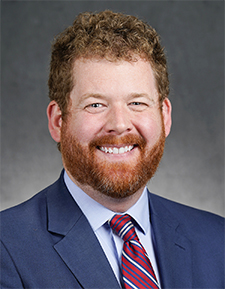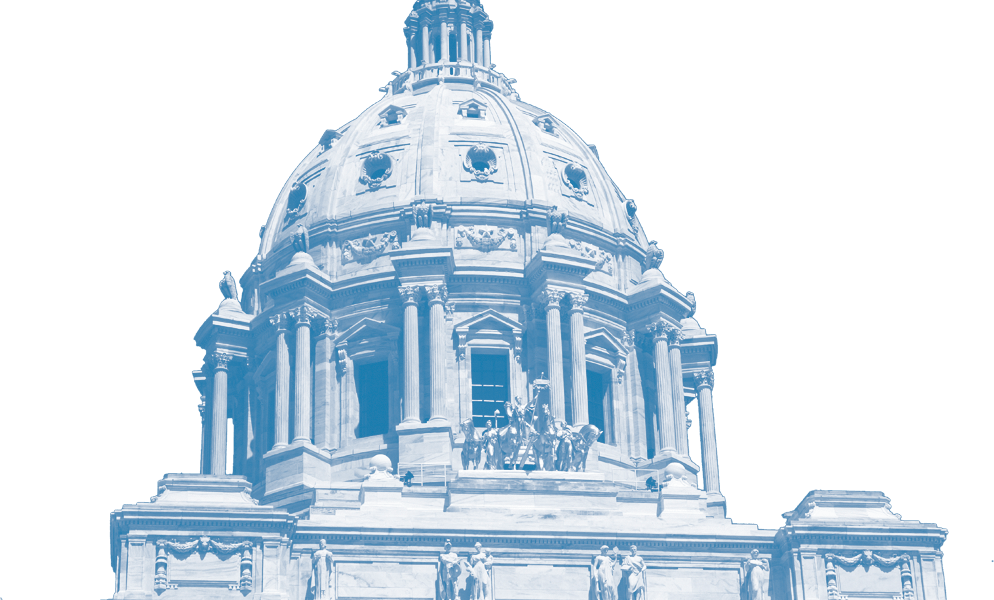It’s called historical horse racing and it could be history in Minnesota before the first call to the post.
As the Minnesota Racing Commission is giving the go-ahead to a new game for the state’s two horse racing tracks, a top legislator is trying to make it illegal. An amendment to a pending sports betting bill would disallow the games before they can be installed at Canterbury Park in Shakopee and Running Aces in Columbia.
At issue is whether the game, which uses a terminal to allow betting on recorded races run in the past at tracks across the U.S., is akin to betting on live races or whether it is more like a slot machine. That is, is it a game of skill based on handicapping horses that is legal for the tracks? That’s what the two tracks — and the racing commission — have concluded.
Or is it a game of chance? That’s what the state’s tribal nations, who have exclusive rights to offer slot machines, say.

Rep. Zack Stephenson, the Coon Rapids DFLer who has been trying to pass a sports betting bill since 2021, is siding with the tribes. He has amended his version of the sports betting bill (HF 2000) to make it clear that historical racing terminals are illegal.
“We prohibit something that’s called ‘historical horse racing,’ which is just a euphemism for slot machines,” Stephenson told the House Commerce Committee on Wednesday. After getting pushback from some Republicans on the committee who said the games appear to require some skill and knowledge — and that the struggling tracks could use the money — Stephenson drew what he called a red line in the sand.
“I want to be very clear with folks — there is no universe in which any bill that leaves this committee will authorize historical horse racing at the tracks,” he said. “It’s a total non-starter. It will not be part of the sports betting deal.”
Even if the sports betting bill does not pass, Stephenson could include the ban in a separate bill or as part of a commerce committee omnibus bill.

And there is little certainty that a sports betting bill will pass this session.
So far, neither Stephenson nor Sen. Matt Klein, the Mendota Heights DFLer who is working on the issue in the Senate, has come up with a bill to win majority votes in both the House and Senate.
While some DFLers support sports betting that relies on existing tribal gambling operations to sponsor mobile betting, others oppose any expansion of gambling. Attracting enough GOP votes to make up the difference has usually meant doing something to help the two tracks, as well as boosting the finances of charities that use pull tabs to raise money for their work.
Stephenson appears to have done enough to gain the support of the charities by using some proceeds from a gambling tax to cut state taxes on pull tabs. Neither lawmaker, however, has succeeded in giving the tracks enough to earn their endorsement but not so much that the tribes object. A pillar of the tribal position on gambling is that the tribes control gambling expansion and that there can be no expansion of non-tribal commercial gambling.
Losing popularity
Horse racing has been in decline in Minnesota and across the U.S., due to changing tastes and the availability of betting options elsewhere, especially online. If fewer people go to tracks and place bets, less revenue is available to reward horse owners who win races. That has led to fewer owners and fewer horses.
“Although purses nationally were up 17.2% between 2018-2022, Minnesota has experienced just the opposite,” stated a study of the possible financial impact of historical horse racing by Marquette Advisors. “At just over $10.6 million in 2023, total purses were down 30.7% over five years, including a dramatic 32.7% decline between 2022-2023.” The decline lines up with the end of a marketing agreement between the Shakopee Mdewakanton Sioux Community in 2022 that provided money to increase purses.
Several attempts have been made to boost purses, such as allowing limited casinos at the tracks and allowing betting on races run at other U.S. tracks via simulcast video. Track owners fear legalized sports betting will further reduce attendance and have asked to be included in the proposed sports betting bills. But tribal exclusivity is a requirement for DFL legislators and Gov. Tim Walz.
So why not historical horse racing?
The games are offered in five other states: Virginia, Kentucky, Wyoming, Arkansas and Kansas. The Marquette Advisors study projected that with 500 historical horse racing terminals per track, the installation would raise gross income of nearly $25 million a year by the fifth year.
While sports betting sponsors have offered some money for the tracks from the taxes on the new better, the largest offer has been $3 million a year and the latest Stephenson version offers just $625,000 a year to boost purses.
The commission voted 5-1 to approve the request.
“The state’s governing body of the horse racing industry has now clearly spoken. The MRC did its job to protect and save the horse racing industry. Politicians in St. Paul must respect and preserve their decision and allow the racetracks to survive,” said Taro Ito, president and CEO of Running Ace, in a statement.
But the Minnesota Indian Gaming Association that represents nine of the state’s 11 tribes on gambling issues argues strongly that the games are illegal and the Racing Commission exceeded its legal authority.
“Slot machines not located on tribal land remain illegal in Minnesota,” MIGA Executive Director Andy Platto said in a statement Tuesday. “After decades of debate at the Capitol on the topic, the Racing Commission decided to usurp legislative authority and unilaterally authorize slot machines at the state’s horse tracks. We will strongly oppose any efforts to implement the Commission’s decision, and will be looking at all available options.”
Legal action?
One of those options could be litigation, similar to a lawsuit filed earlier this year to block another gambling offering approved by the racing commission. Shakopee Mdewakanton Sioux Community v. the Minnesota Racing Commission asks the state Court of Appeals to cancel a decision by the commission to allow one of the state’s horse racing tracks to expand its card room offerings.
Unlike historical horse racing, which hasn’t been installed yet, both tracks already offer what is sometimes called Stadium Gaming. The system, built by a company called Interblock, allows a live dealer to deal cards to up to 11 players. Those players, in turn, use the terminals to place bets and request additional cards.
Platto referenced a letter from the state Alcohol and Gambling Enforcement division of the state Department of Public Safety that makes the case that the proposed machines are slot machines.
“The Commission rejected the opinion of the state’s gaming regulators at the Alcohol and Gambling Enforcement Division who have consistently held that these games are gambling devices just like slot machines, and thus are illegal under state law, Platto wrote.
That letter came down on the side that the devices are not legal. But it did acknowledge track arguments that skill is a factor.
“The player who understands handicapping may then make choices to impact their rate of return,” the agency letter stated. “However this is not much different than a player of a video poker machine,” because they use some knowledge of poker to select cards to hold and which to discard.” Video poker machines are gambling devices under state law and are not legal.
“We have concluded the technical aspects of HHR match the elements of (state law defining gambling device and video games of chance) making HHR a gambling device under MN law,” wrote the division.
But a lawyer from Maslon LLC hired by the two tracks took issue with that interpretation.
“Because patrons may access and analyze handicapping information before placing wagers, patrons with more skill are able to make better wagers and, over time, outperform similarly situated patrons with less skill,” wrote Evan Nelson of the law firm.
The proposal approved by the racing commission notes that the tracks are using an older version of the historical horse racing that looks less like a slot machine. But Nelson wrote that state law doesn’t define ‘gambling device’ by how it looks but by whether it meets other requirements.
“Unlike beauty, legal conclusions of what is and is not a gambling device are not in the eye of the beholder,” he wrote. “The MRC has the authority to approve the application. And because doing so will benefit the horse racing industry, racing fans, horsepersons, and the agriculture sector of our state, the MRC should approve the application.”



